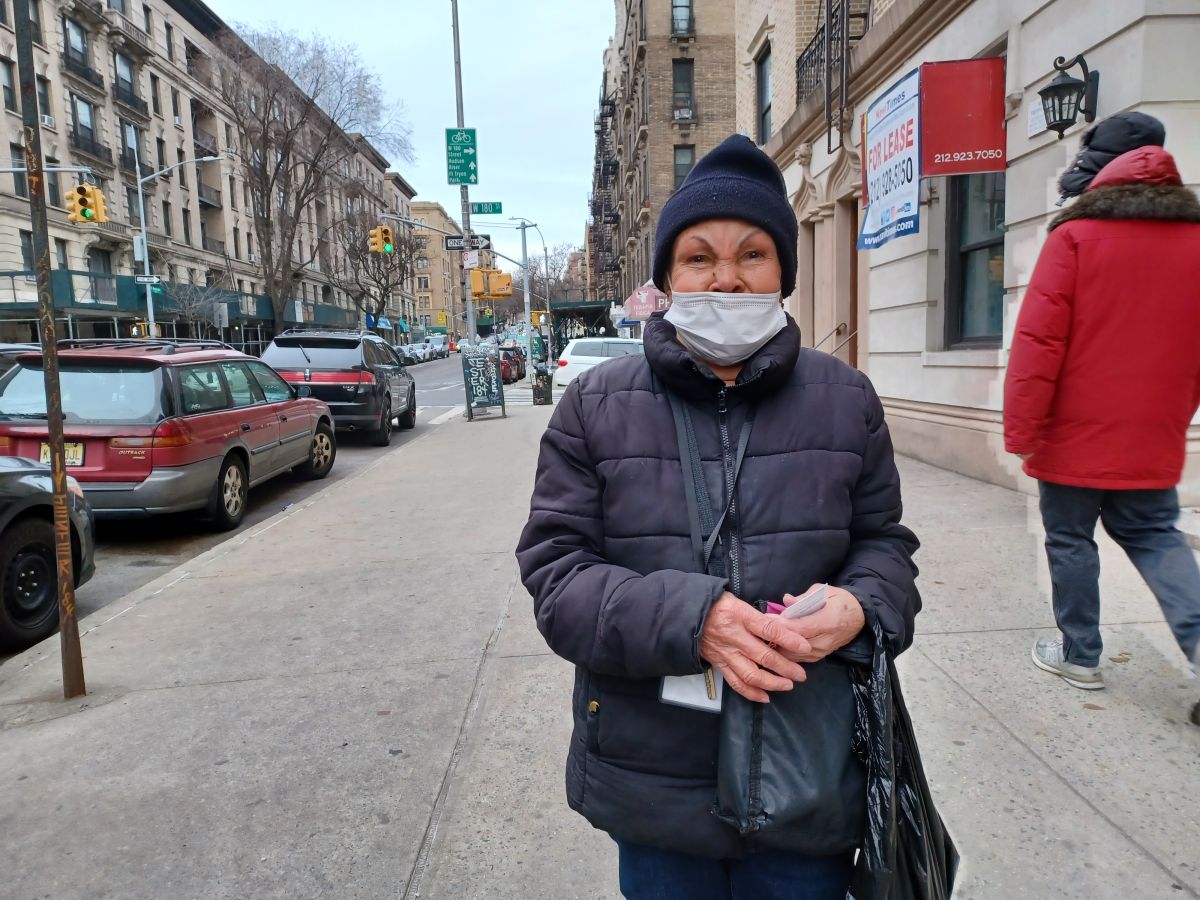Exactly it was in a winter of 1964 when, being just a girl, the Dominican Leticia Durán set foot in New York City. From that moment she made it her home. Now, 50 Years later, he describes in detail that his “heart is still on the island”.
“Here I have worked, I have fought , and despite this cold, I can hardly think of going back. Although I go frequently and I enjoy immensely when I go. But I don’t know much about political things there. I have no idea if the president of the island is doing it right or wrong,” says the immigrant who became a US citizen and still works in the health sector.
This Sunday, when commemorates the 80 anniversary of the Independence of the Dominican Republic, the more than 850,000 Dominicans living in the Big Apple, like Leticia , have an additional reason to think about the future of their island: “one thing you want is that both those from there and those from here, of whom there are many, continue to have opportunities to work and do well. I have two countries in my life”.
Unlike from Leticia, his countrywoman Margarita Liscano, born in El Cibao, recently arrived in New York. In fact, it is the first time that she will remember the independence of her country as an immigrant. But, at this point, she assures that unfortunately most of her classmates “only dream” of leaving it.
“I come from a beautiful country. With very special people. But even if you work hard, wages and inflation do not compensate for quality of life. Here there are other challenges, but if you work hard you can live better”, assures the waitress of 15 years, in a restaurant on St Nicholas Avenue in Upper Manhattan .
According to the latest data from the International Labor Organization (ILO), finding a job is the greatest challenge faced by young people in the Dominican Republic, especially among the 15 and 24 years, where the unemployment rate stands at 15.5 %.

 The prospect of Dominican migration to the country is growing. (Photo: F. Martínez)
The prospect of Dominican migration to the country is growing. (Photo: F. Martínez)Intact reasons for leaving the island
The political leader residing in New York, Luis Rodríguez, from the organization Alianza País, assures that the reasons why many generations emigrated are still “intact”.
“Within the 60% and 62% of all surveys on the island indicate that especially the youngest want to leave the country in search of a better life. The dream of return is still a simple dream for Dominicans, “said the activist.
In Rodríguez’s opinion, the concentration of wealth in his country continues to be overwhelmingly unequal. And the crisis of unemployment, inflation and corruption are calamities that do not appear to have a structural solution in the short term.

According to the Migration Policy Institute (MPI) the number of Dominican immigrants has increased rapidly in recent 60 years, in a pattern of migration caused by the political and economic turmoil following the assassination of dictator Rafael Trujillo in 1961.
“On 1960, the Dominican immigrant population was 000,000 nationwide, that number quintupled in a decade to 61,02, nearly tripled between 1960 and 1980, doubled so much in the decade of 1980 as in 1990 and has continued to grow”, concludes the analysis.
Almost 1.2 million Dominicans live in the United States, which translates to about 3% of the overall immigrant population.
And in this context, the 60% of Quisqueyans live in New York and New Jersey.

 Dominican musician Juan Martínez considers that there are signs of a better future on the island for the new generations. (Photo: F. Martínez)
Dominican musician Juan Martínez considers that there are signs of a better future on the island for the new generations. (Photo: F. Martínez)A change on the island
The political activist Luis Rodríguez insists that although in August 1990 the presidential elections unseated the Dominican Liberation Party (PLD). ), after 20 years in power, it is difficult to say that there are scenarios that come close to a change in the quality of life of those who live in the island.
“The government of President Luis Abinader undoubtedly enjoys the sympathy of the majority, but that is because it still brings together the discontent of the disaster accumulated for many years. But that does not mean that there is a notable change in governance, which allows us to think that Dominicans have a better future, “says the immigrant.
A recent report by CID Gallup and other pollsters cited by local media in Santo Domingo, they realize that the president Luis Abinader has an acceptance between the 62% and the 70%. Other reports indicate that he is the best valued in all of Latin America after Ecuadorian President Guillermo Lasso.
In this tune is the musician Juan Martínez, who arrived in the city twelve years ago. The immigrant believes that he does observe positive changes in his country due to very clear signs in the fight against corruption.
“I think that President Abinader is doing an excellent job like he had never seen before. He is imprisoning the corrupt, those who destroyed my country, those who stole our money. That is why many fled to seek a better life”, he assures.
Juan, with 70 years, he plays when he can the guitar and bandoneon with sounds and rhythms from his island : “We got used to being in this wonderful country, but somehow we brought that land here, with music, with our food,” he commented on a street corner in hectic Washington Heights.
